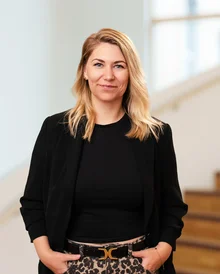Spiritual support at the end of life - spiritual care must become part of palliative care
Study by UW/H Professor Dr Arndt Büssing on behalf of Diakonie Deutschland presented in Berlin.

In hospitals, nursing homes and hospices, seriously ill and dying people want their spiritual needs to be taken into account. However, these hardly play a role in their day-to-day care, even though spirituality is defined as a pillar of palliative care. This is the conclusion of a study conducted by Witten/Herdecke University on behalf of Diakonie Deutschland. Diakonie Deutschland is therefore calling for spiritual care to be firmly integrated into the curriculum of medical and nursing appointments.
Since 2020, Diakonie has been training nursing staff in the field of spiritual care in a pilot project entitled "Spiritual support at the end of life (SpECi)". 87 per cent of patients surveyed feel well supported by the professionals trained in spiritual care. 79 per cent feel supported by them in their spiritual needs. This is the result of the accompanying scientific study presented by Prof. Dr Arndt Büssing, Professorship of Life Quality, Spirituality and Coping at Witten/Herdecke University, at a symposium in Berlin on 25 May. The trained professionals also benefit from the 40-hour course: 85 per cent state that the course has made them more confident in dealing with the spiritual needs of seriously ill and dying patients and 85 per cent of them also respond to these needs significantly more often than before. This is despite the fact that they were under a lot of pressure due to the pandemic-related restrictions.
Lack of time for dialogue
Nevertheless, 87 per cent of professionals would like more time to talk about spiritual needs. Only when team spirit develops is the job satisfaction of nursing staff higher, despite the stress of the job. "There is still a lack of adequate time and personnel resources for spiritual care. And this lack is burning out the ideals of those who are already working at the limit," says Prof Arndt Büssing.
Ulrich Lilie, President of Diakonie Deutschland: "Especially in an increasingly diverse society with increasingly diverse ideas of a good end of life, spiritual care is playing an increasingly important role. In order to be able to realise this wish professionally, spiritual care must be given a fixed place in the curriculum of the medical and nursing appointments and - analogous to personal care - be financed by the cost bearers. In addition, more rooms are needed that enable confidential communication, especially where patients are accommodated in multi-bed rooms."
Background
Providing good spiritual support to seriously ill and dying people is the core objective of the model project "Spiritual support at the end of life (SpECi)", which was founded in 2020. Since then, around 91 care professionals from diaconal institutions have been trained in a 40-hour qualification programme. The accompanying scientific study was conducted by Univ.-Prof. Dr Arndt Büssing, Professorship of Life Quality, Spirituality and Coping, at Witten/Herdecke University. In the study, all 91 course participants, 774 patients and 356 relatives were surveyed at seven participating locations. The course participants were nursing staff, 58 per cent of whom came from retirement/nursing homes, ten per cent from geriatric wards, 16 per cent from palliative care units, 12 per cent from hospices and four per cent from hospitals.
Photos for download
Contact person

Svenja Malessa
Press Officer
Administration | Communication & Marketing
Alfred-Herrhausen-Straße 48
58455 Witten
Room number: 2.F05
